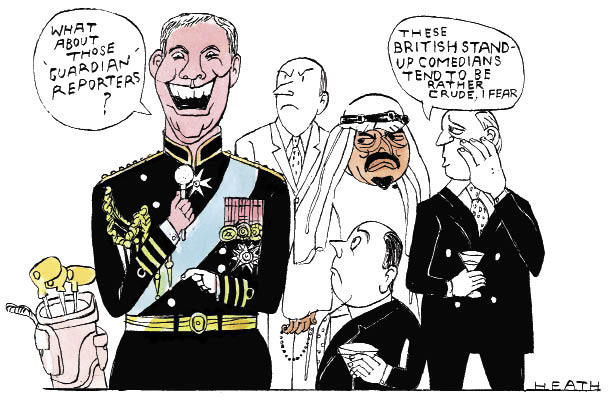Home
The Office for Budget Responsibility said it thought economic growth for 2010 would be 1.8 per cent, not 1.2 per cent as it had previously predicted. It expected 330,000 public sector workers to lose their jobs over the next four years, not the 490,000 it forecast in June; 1.1 million jobs would be created in the private sector. ‘The bulk of this revision results from the action we have taken to cut welfare bills rather than cut public services,’ George Osborne, the Chancellor of the Exchequer, told the Commons. A lower 10 per cent rate of corporation tax would be levied from April 2013 on the profits of hi-tech firms from newly commercialised patents. Tax on beers stronger than 7.5 per cent is to increase from the autumn of 2011. The £400 a week housing benefit cap is to be delayed by six months to October 2011.
Snow swept the land. On high ground in Northumberland it reached 24 inches. Despite a 360,000-ton stockpile of salt, Scotland’s transport minister rejoiced at a 26,000-ton shipment from Peru that reached Leith docks. Wales saw its lowest ever November temperature of minus 18˚C, at Llysdinam. Some 850 schools remained closed for days in Scotland. Odds offered by Corals against a white Christmas at London Heathrow airport narrowed from 8 to 6-1. A North American disease deadly to trees, Phytophthora lateralis, was found on the shores of Loch Lomond.
The government set up another quango, Public Health England, to oversee national programmes such as vaccination, as part of a plan announced by Andrew Lansley, the Health Secretary, to relinquish the role of a nanny state in public health and, instead, nag or ‘nudge’ people by giving them vouchers for swimming and by hiding cigarettes in shops. Students protested again against tuition fees. Household spending fell to £455 a week in 2009, from £471 in 2008, according to the Office for National Statistics. Shareholders approved a merger between British Airways and Iberia. The BA cabin staff union called another vote on strike action. The London Underground went on strike again. An onyx and diamond panther bracelet made for the late Duchess of Windsor sold for £4.5 million. HMS Invincible, containing 10,000 tons of metal, was put on sale on the internet; bids must be in by 5 January.
Abroad
WikiLeaks, an online group, began to release 251,287 US diplomatic cables. They said that King Abdullah of Saudi Arabia had repeatedly urged the United States to attack Iran’s nuclear facilities to ‘cut off the head of the snake’; Jordan and Bahrain had also called for Iran to be stopped. North Korea had provided Iran with better missiles. Chinese officials were reported to have told South Korean officials that China would be happy with a country reunited under the control of the South. A cable from a British diplomatist spoke of ‘deep concerns about the safety and security of Pakistan’s nuclear weapons’. Hillary Clinton, the US Secretary of State, characterised the leaks as ‘an attack on the international community’. The documents had been taken from the widely disseminated US Secret Internet Protocol Router Network. Fingers were pointed at Private First Class Bradley Manning, a US intelligence analyst arrested in Iraq in June and charged over an earlier leak of classified American documents.
Ireland paid €17.5 billion towards its own €85 billion rescue package — €22.5 billion from the IMF and €45 billion from Europe (half from the European Financial Stability Mechanism and half from the European Financial Stability Facility). Ireland will repay the money at an average of 6 per cent. Irish banks received from their government €35 billion to ease liquidity. Allied Irish Banks was in effect nationalised, and Bank of Ireland saw the government’s stake rise well above 50 per cent. Ireland raided its National Pension Reserve Fund, intended for public sector workers, to provide €12.5 billion for the national bailout. But the action did not mend the crisis in the eurozone, with the price of borrowing for Spain and Italy reaching new heights.
The European Commission began an investigation into Google after other search engines complained that it had ‘abused a dominant position in online search’. Kyrgyzstan formed a coalition government, creating the first parliamentary democracy in Central Asia. President Barack Obama of the United States had 12 stitches in his lip after being hit by an elbow during a basketball game. Chris Voigt, the head of the Washington State Potato Commission, ate nothing but potatoes for two months; he lost a stone and a half. CSH






Comments